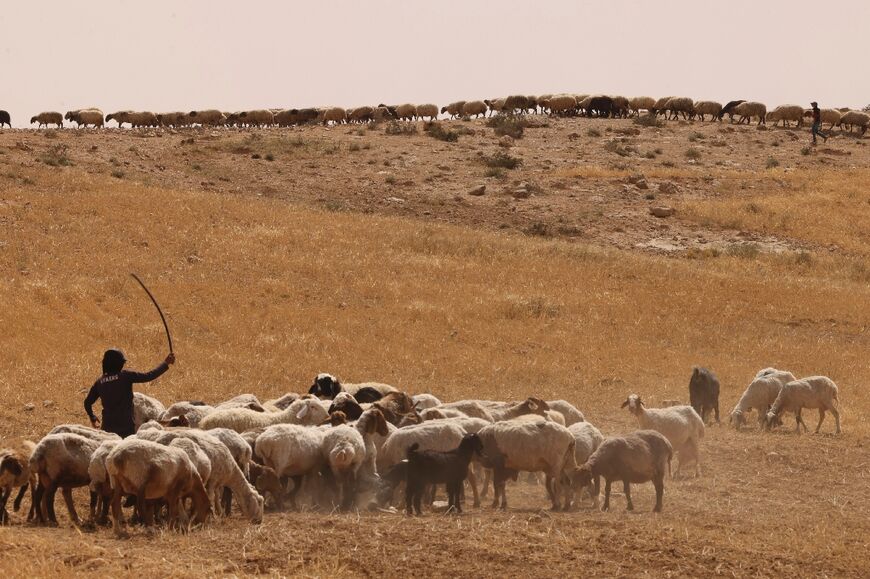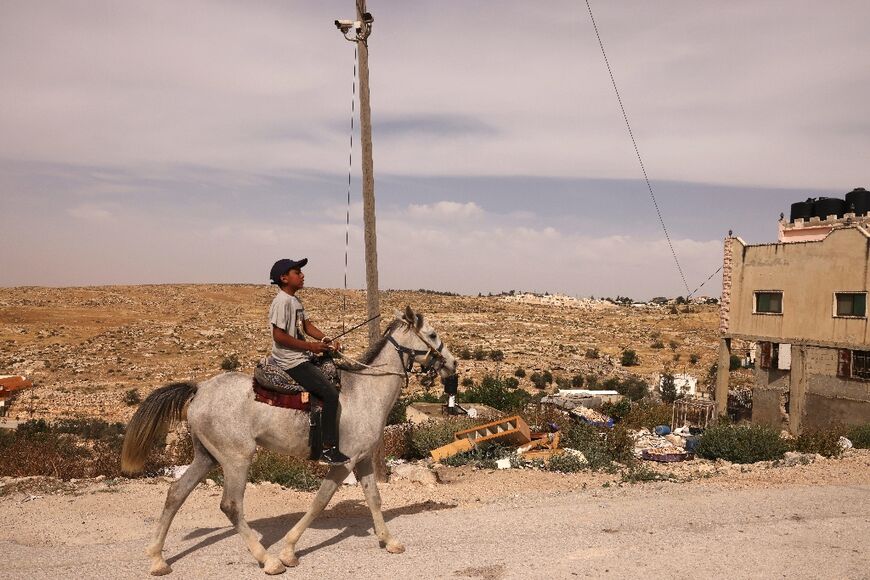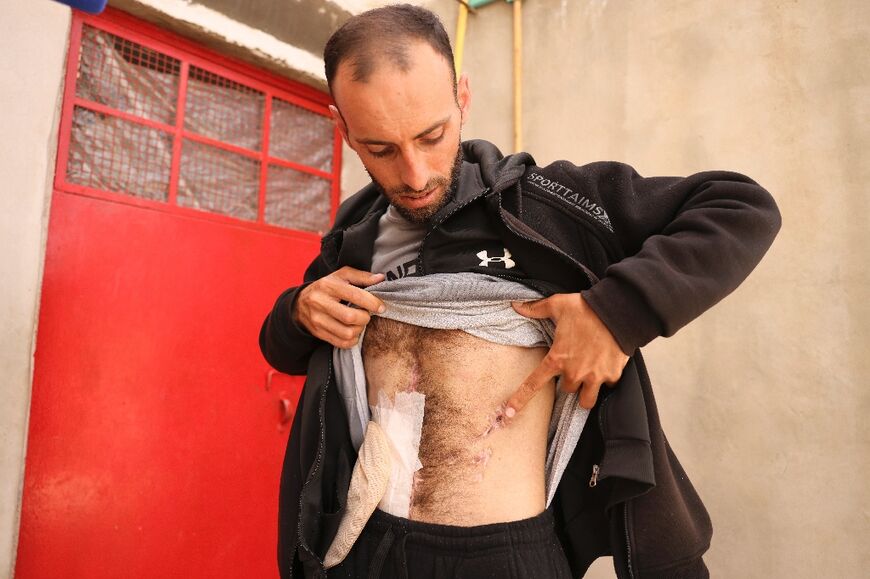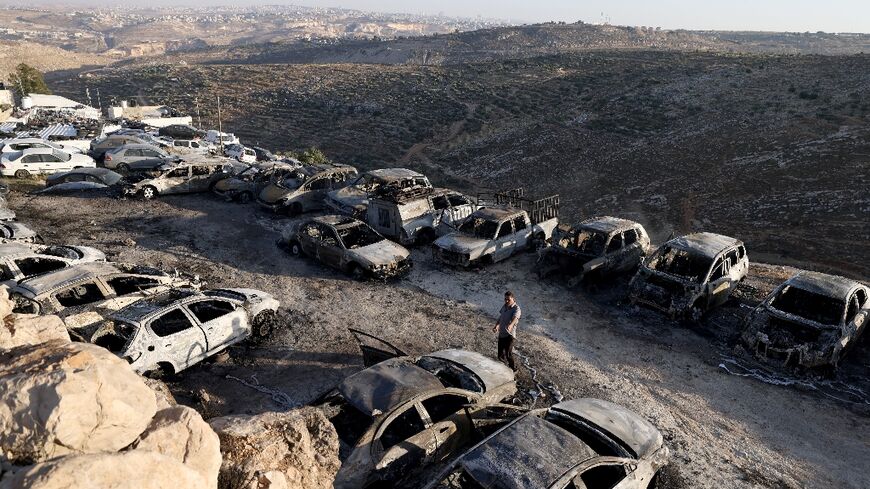The Israelis helping Palestinians hit by settler attacks
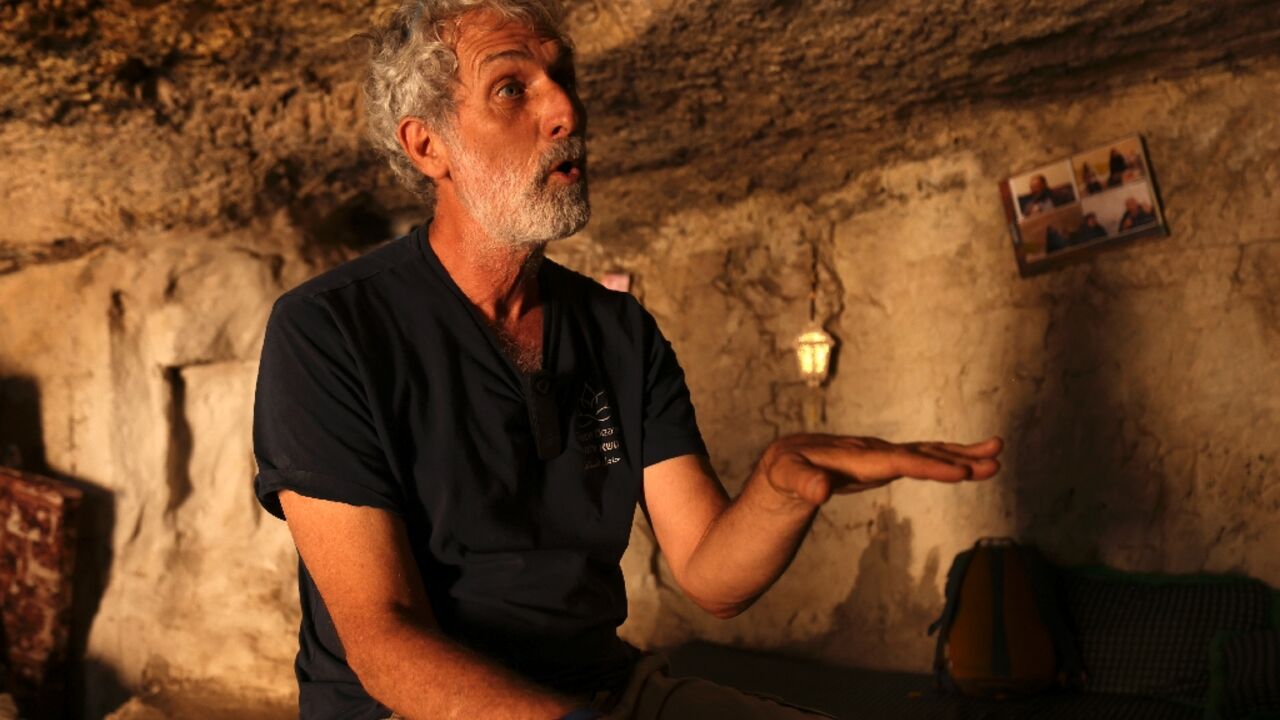
In a desert region of the occupied West Bank, Israeli activist Eyal Shani has fitted a tiny camera on his T-shirt to collect evidence of settler violence against Palestinian sheep farmers.
Campaigners like Shani have been trying to protect Palestinians from Jewish settlers in the rugged Masafer Yatta area south of Hebron, in the southern West Bank, but they say it has become increasingly difficult with attacks soaring following the outbreak of war in Gaza.
"If we're not here the settlers take all the power into their hands, they don't see the Palestinians as humans," the 56-year-old said. "We are the last shield."
Israel has occupied the West Bank, home to three million Palestinians, since 1967 and around 490,000 Israeli settlers live there in communities considered illegal under international law.
Rising settler attacks since the war in Gaza have sparked widespread alarm and condemnation, including from the UN.
Several times a week, Shani visits Masafer Yatta and checks up on Palestinian shepherds like Shihada Salameh Makhamreh, 60, who lives with his family in a hamlet carved into a rock face.
Their cool cave dwelling keeps out the heat, but it doesn't protect them from Israeli settlers who have moved in nearby.
Makhamreh said that in mid-January, a group of young settlers attacked their home in the middle of the night and beat his 75-year-old mother.
Since then, he said the family has been living in terror, unable to understand why they were targeted in such a remote area.
"We are peaceful people," Makhamreh said. "We don't play politics."
- 'A free hand' -
Settler attacks in the West Bank have been on the rise for some time, but have increased even faster since the October 7 Hamas attack that triggered Israel's assault on Gaza.
The UN's humanitarian office OCHA recorded 1,096 settler attacks between October 7 and March 31, an average of six a day, up from three a day before October 7 and two a day in 2022.
Israeli activists say they have been struggling to keep emboldened settlers at bay.
Anti-settler activist Ehud Krinis, 57, said West Bank settlers have been able to count on the support of the most right-wing government in Israel's history.
Two leading Israeli ministers live in settlements -- Itamar Ben Gvir and Bezalel Smotrich -- and Krinis said settlers now feel they have "a free hand to do almost everything they want."
Meanwhile, the Israeli activists visiting Masafer Yatta say they have felt increasingly isolated since October 7.
"Some people see me as a traitor, that I betrayed the Zionist idea of having a free Jewish state," said Shani.
Irene Bleier Lewenhoff, 73, a retired nurse who came with Krinis to bring food for the Makhamreh family, said she had felt "very, very lonely" in Israeli society since the war, even though she has been campaigning against Israel's occupation of the West Bank for over 50 years.
The problems in Masafer Yatta are long-standing, with the Israeli army declaring the area a restricted military zone in the 1980s.
In May 2022, following a lengthy legal battle, Israel's supreme court ruled in favour of the military and helped pave the way for the eviction of Palestinian residents, who said their ancestors had lived there for generations.
Krinis said the army was allowing settlers to move into the Masafer Yatta hills to push the Palestinian population out.
"The army doesn't want to evacuate them directly, so they're trying to do it in an indirect manner," he said.
The idea was to "let the settlers be the ones who put pressure there", he said.
If the settlers make life difficult enough, Krinis said, the Palestinians will eventually "decide by themselves to move away".
- 'Difficult and dangerous' -
At least 491 Palestinians have been killed by Israeli forces or settlers across the West Bank since October 7, according to Palestinian officials.
In the same period at least 19 Israelis have been killed in attacks by Palestinians, according to official Israeli figures.
Elsewhere in Masafer Yatta, the Israeli activists have been helping another Palestinian family in the aftermath of a settler attack.
Zakaria al-Adra said that on October 13, a settler shot him at point-blank range in the village of Al-Tuwani, south of Hebron.
Footage shared by the Israeli rights group BTselem appears to show soldiers standing alongside the gunman.
The 29-year-old said that despite undergoing more than 10 medical operations, he was no longer able to work or support his wife and four children, including 10-month-old twins.
Ehud and Irene visit weekly, bringing supplies including diapers for the babies.
Adra's wife Shouq, 24, told AFP life had become more "difficult and dangerous" since October 7.
"The whole settlement has guns," she said, adding that even Israeli and foreign volunteers were no longer safe.


